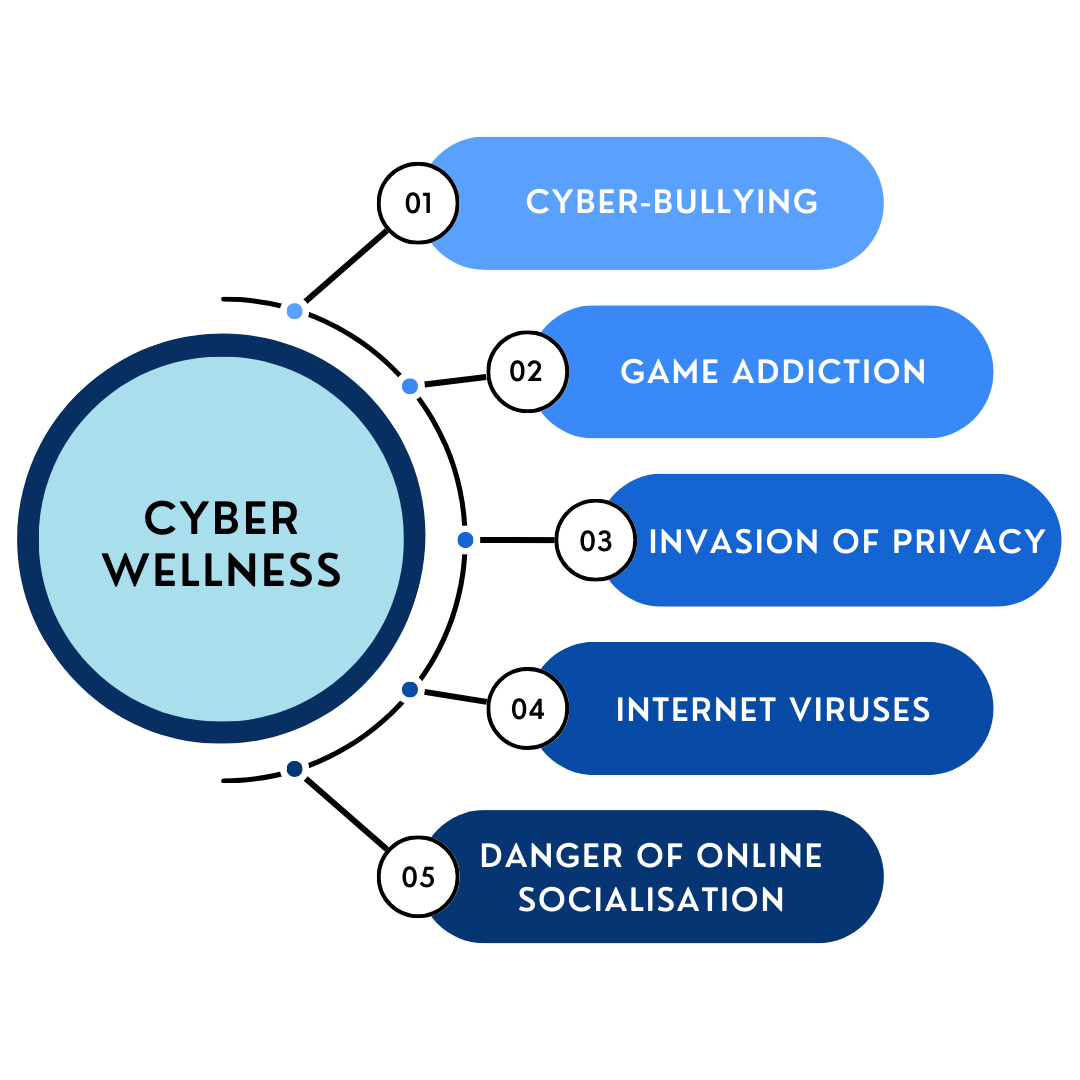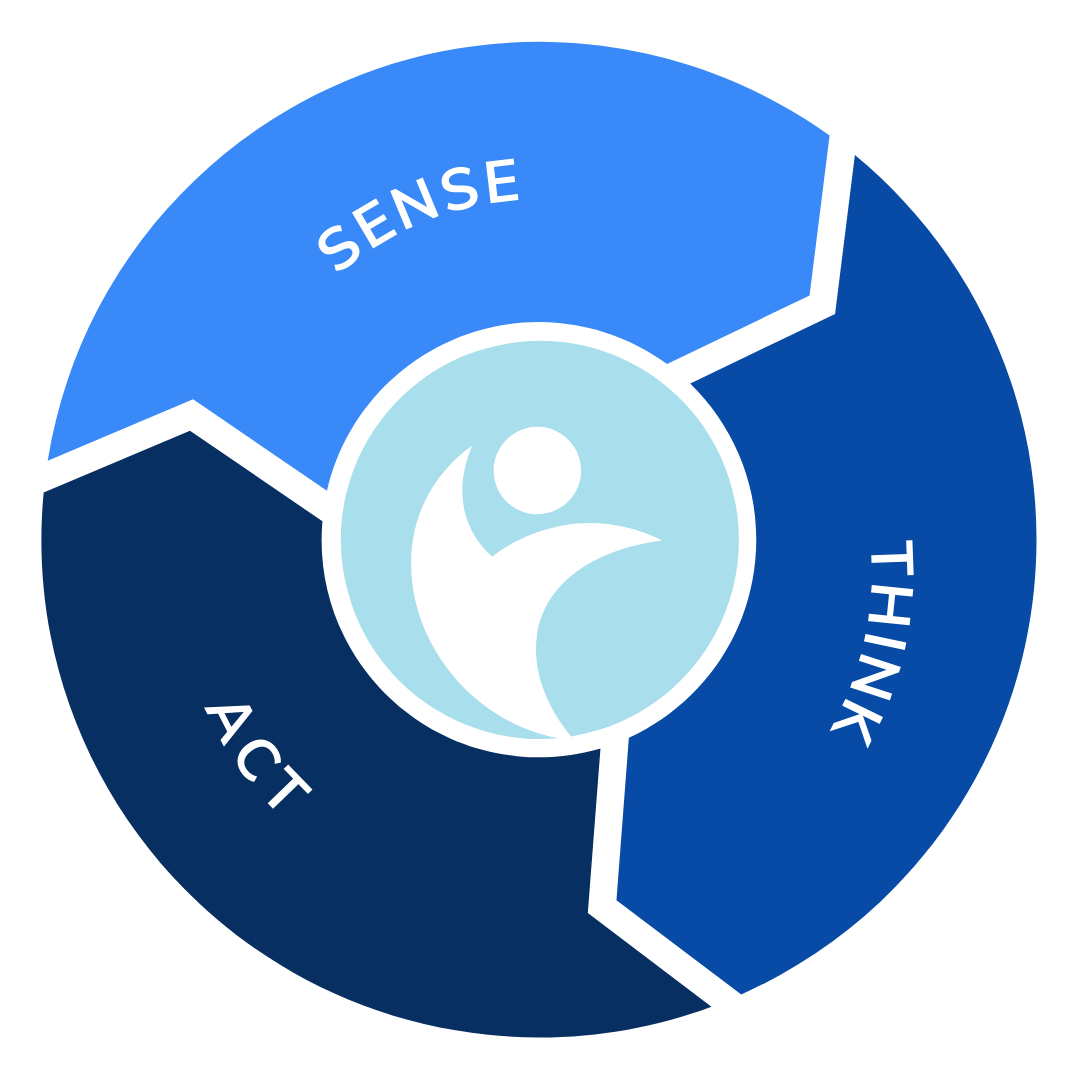Cyber Wellness @ PVPS
Cyber Wellness @ PVPS
What is Cyber Wellness?
Cyber Wellness refers to the positive well-being of Internet users. It involves an understanding of the risks of harmful online behaviors, an awareness of how to protect oneself and other Internet users from such behaviors.

PVPS adapts MOE’s Sense-Think-Act framework to develop pupils’ instinct to protect and empower them to take responsibility for their well-being in cyberspace. The two principles, ‘Respect for Self and Others’ and ‘Safe and Responsible Use’ when adhered to will anchor pupils’ well-being in cyberspace as they will then be able to make careful and well-considered decisions.

Sense: Pupils should be able to identify the possible
risks.
Think: Pupils should be able to analyse, evaluate and
reflect on the online situation they are facing based on the two principles.
Act: Pupils should be able to translate his/her understanding
into actions that will keep him/her safe while online.
The Cyber Wellness Curriculum focusses on the development of 21st century and social-emotional competencies in the use of ICT. The main platform for the delivery of the lessons is via Form Teacher Guidance Periods (in Primary schools).
PVPS also collaborates with FamilyMatters@School to engage TOUCH Cyber Wellness to train and empower our Service Learning Council (SLC) Cyber Wellness Ambassadors to have greater sense of responsibility, perseverance, optimism, better self-esteem and confidence. The Ambassadors will also able to identify potential hazards in the cyberspace faced by their peers and provide solution to address these concerns. Assembly talks are conducted by our SLC Cyber Wellness Ambassadors to promote good cyber wellness practices.
Dos:
-
Seek permission before using computing devices.
-
Have a time limit for the use of electronic devices.
-
Practice netiquette on the internet.
-
Respect intellectual property right.
-
Follow rules and terms of use of different websites.
Don'ts:
-
Access websites that have age restrictions for e.g. Many social media sites have age limit for setting up.
-
Accounts to comply with international regulations on children accessing social media.
-
Share password with others.
-
Share personal information online.
-
Meet strangers face to face without parents’ knowledge spread rumours and say mean things online.
Useful tips and information for Parents and Pupils
-
Future tense: Keeping kids grounded while tech turns the world upside down
-
What does a student’s AI-enhanced day look like? Here’s a peek
-
7 things every parent can do to keep kids cyber-safe: A tech dads special
-
The future looks rosy’: why this dad isn’t afraid of the rise of AI
-
Parent Kit - Experiencing Blended Learning with Our Children

